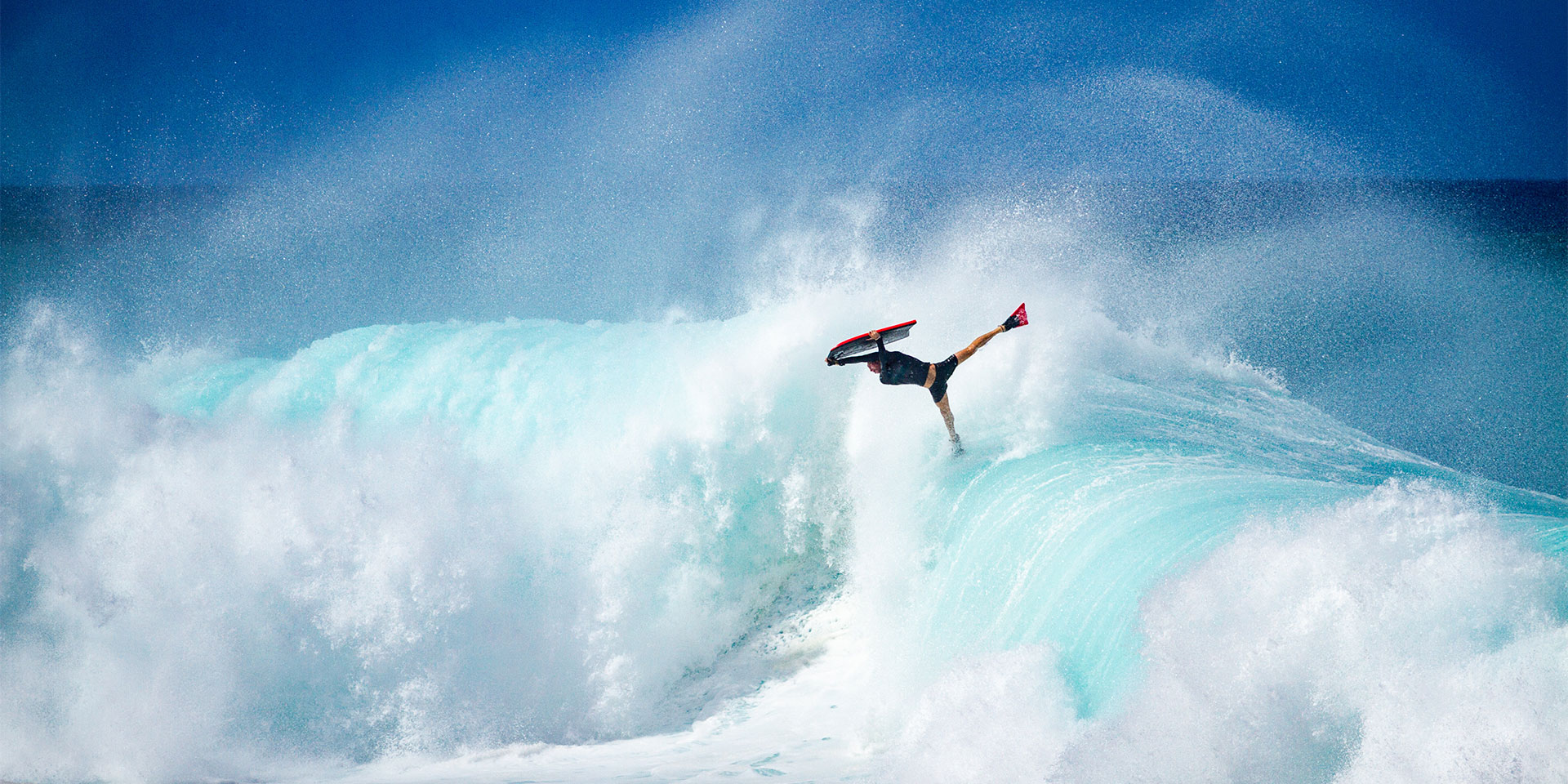Growing up on the sunny east coast of Australia meant summers at the beach. I was no surfer dude but the crash of waves and unmistakable squeak of hot sand was often a soundtrack in my adolescence. It’s easy to romanticise the white sand beaches and crystal blue hues of Australia’s coastal waters but now, particularly as a parent, I am aware of the danger that lies amongst the beauty—large swells, riptides that pull you from shore, and of course, the hyperbolic myth of sharks in the shadows. But as a young person, the beach is indeed bliss—until it’s not.
One moment in my mid-teens made me realise how quickly things can turn for the worse. A friend and I had gone to one of our favourite beaches an hour or so north of Sydney to bodyboard. It was a warm Sunday morning and we would paddle out, catch a wave and return, enjoying each other’s company and the surging waves behind us.
At some point, however, we realised that the breaking waves had deserted us. The waves rolled through and there was nothing to catch. It was at this moment we heard the growing hum of an outboard motor. The distinctive red inflatable of the Surf Life Savers was closing in on us with four bronzed volunteers at the helm. “Hey boys, you want a lift?” one shouted as they slowed their approach. His tone was firm and my friend and I looked at each other, slightly confused. We were just having fun in the surf and in no trouble at all. Why would we need help?
But as we turned back toward the shore, we noticed that we were not only a lot farther out than we had remembered but also several hundred metres farther down the beach than we had been. We had unknowingly found ourselves in a strong riptide and in reality, in a bit of trouble. We hadn’t noticed, but the lifeguards, who had been training off the beach, certainly had.
“Hang tight with your boards. I just need to drop two of these guys off so we can fit,” he said. “You’ll be all right.”
All we could manage in reply was a sheepish, “Yep, sure.” With tiring bodies caught in a strong and wide current, our situation could have quickly taken a bad turn—something we only came to realise when, as we waited for the lifesavers to return, a large wave knocked both of our boards from underneath us and we were left anxiously treading water. Fortunately, they soon hauled us into the inflatable and as we shook hands with our rescuers back on the shore, we realised just how desperately we needed saving that day.
What is salvation?
The drowning-swimmer-at-the-beach experience isn’t universal. But the need for saving certainly is. The Bible highlights that from the very beginning, humanity needed a Saviour. When Adam and Eve disobeyed God’s command and ate from the one tree He had instructed them not to (Genesis 2:17), they demonstrated humanity’s ongoing ability to abuse the gift of free choice—a concept called “sin”. Exercising their ability to sin, to choose their way over God’s way, was not part of the divine idea. However, this human tendency did not take God by surprise. He had always had a plan.
Adam and Eve’s choice in the Garden led to eternal consequences—God’s law had been broken and by nature, humanity had entered a sinful state. The penalty for Adam and Eve, along with all their descendants (including you and me), was death (Romans 6:23).
We’d been designed with eternity in mind, but sin meant our lives would be finite—that eventually, our perilous swim in the sea of life would doom us all.
But salvation means we are delivered, that we are saved—and eternal life is a possibility. Like my friend and I in the surf that day, we may not even be aware of our need for it, but God has given us a way out. And that way has a name: Jesus Christ. Jesus’ death and resurrection are God’s gifts to save us from eternal death. Through Him, we have a chance at the eternal life God originally had in mind. We were created in love and have been saved through love: “But God demonstrates his own love for us in this: While we were still sinners, Christ died for us” (Romans 5:8). It was Jesus’ sacrifice that made salvation possible. His perfect life made a way for us to be saved. “For God so loved the world that he gave his one and only Son, that whoever believes in him shall not perish but have eternal life” (John 3:16).
Can I save myself?
Swimming against the riptide would not have brought my friend and me closer to the shore. We would have become more tired and drifted farther from safety. Saving ourselves was not an option.
Similarly, Jesus Christ is the only way to receive salvation (Acts 4:12). There is nothing we can do—or need to do—to earn it. The Bible puts it this way: “If you declare with your mouth, ‘Jesus is Lord,’ and believe in your heart that God raised him from the dead, you will be saved. For it is with your heart that you believe and are justified, and it is with your mouth that you profess your faith and are saved” (Romans 10:9, 10). It is an oxymoron but the only way to save yourself is to realise you can’t save yourself—and put your faith in the salvation offered by Jesus. It is a gift offered to all—a gift we call “grace” (Ephesians 2:8).
The experience of salvation
If accepting the gift of God’s grace sounds easy, it is. But like anything that leads to change and growth, work and pain are often involved. Accepting God’s gift means putting Him first, which challenges our selfish, sinful natures. Consciously putting God and others first can be difficult, even for long-time believers.
God knew this so He sent the Holy Spirit as our Guide, Comforter and Encourager. When you accept God’s gift of grace and receive salvation, you say yes to the Holy Spirit working in your life.
As a result, salvation is always a lived experience. It is not a moment in time—past, present or future—but a day-by-day experience with God. Jesus’ sacrifice means His perfect life is exchanged with yours—the consequences of your sins have been taken already. And through the power of the Holy Spirit, your experience of salvation leads you to follow His perfect plan for your life.
The Bible tells us that God is love (1 John 4:8). His plan of salvation and the gift He offers each of us are simply an extension of His nature. Jesus’ sacrifice demonstrates how desperately He wants to save all of humanity. He will leave no stone unturned to make sure every person has the opportunity to accept His gift of a better life now and for eternity.
My friend and I could have said no to the surf lifeguards, but to do so would have meant risking death. What will you say to God’s saving hand today?
Braden Blyde is a freelance writer based in Adelaide, South Australia. A version of this article first appeared on the Signs of the Times Australia/New Zealand website and is republished with permission.




















